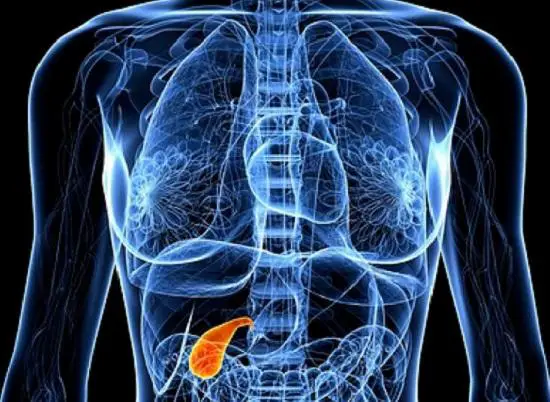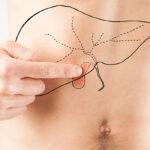Cottonelle Ultra Clean Toilet Paper with Active CleaningRipples Texture, 24 Family Mega Rolls (24 Family Mega Rolls = 132 Regular Rolls) (4 Packs of 6), 353 Sheets Per Roll, Packaging May Vary
10% OffIntroduction
The removal of the gallbladder, also known as a cholecystectomy, is a frequent surgical treatment used to treat symptoms brought on by gallstones or other problems involving the gallbladder. A collection of symptoms known as post-cholecystectomy syndrome (PCS) may appear in some people even while the operation successfully treats the underlying issue. This page seeks to clarify the PCS management choices that are accessible.
Post Cholecystectomy Syndrome Treatment
Understanding Post Cholecystectomy Syndrome (PCS)
It’s critical to comprehend what post-cholecystectomy syndrome comprises before looking at the available treatments. A group of symptoms known as PCS can emerge or continue following gallbladder removal surgery. Mild discomfort to excruciating pain is the spectrum of symptoms, which can also include:
- Abdominal pain or cramping
- Indigestion and bloating
- Diarrhea or loose stools
- Nausea and vomiting
- Excessive gas or flatulence
An individual’s quality of life may be greatly impacted by these symptoms, making proper treatment essential.
Lifestyle Changes for Managing PCS
- Diet Modifications: Changing one’s diet can be extremely helpful in controlling PCS symptoms. Smaller, more frequent meals are advocated for patients rather than larger ones. Preventing stomach discomfort can be achieved by avoiding fatty and oily foods. Including foods high in fiber, such as whole grains, fruits, and vegetables, can help control bowel motions.
- Hydration: To maintain proper digestion, it’s important to consume enough water throughout the day. Constipation can be avoided and the smooth transit of food through the digestive system is ensured by maintaining hydration.
- Physical Activity: Regular physical activity has been shown to enhance digestion, control bowel motions, and lessen PCS symptoms. Exercises like yoga, swimming, and walking can be advantageous. Before beginning any workout program, it’s crucial to speak with a healthcare provider.
- Stress Management: Gastrointestinal problems might be made worse by stress. Effective management of PCS symptoms can be achieved by using stress-reduction approaches including deep breathing exercises, meditation, or relaxing hobbies and activities.
Medications for PCS Treatment
- Bile Acid Sequestrants: The amount of bile that is accessible for absorption is decreased by bile acid sequestrants, which bind to bile acids in the colon. Bile acid sequestrants can help treat diarrhea and lessen the symptoms that go along with it.
- Antispasmodic Medications: Antispasmodic drugs calm the smooth muscles of the gastrointestinal tract, which lessens cramping and pain in the abdomen that PCS patients suffer.
- Proton Pump Inhibitors (PPIs): PPIs are frequently prescribed to treat acid reflux and heartburn symptoms. Additionally, they can lessen the formation of stomach acid and ease indigestion symptoms, which will help with PCS symptoms.
- Antidiarrheal Medications: To control bowel motions and relieve discomfort, antidiarrheal drugs may be used when diarrhea is a prevalent symptom of PCS.
Surgical Interventions for PCS
When conservative measures are ineffective, surgical treatments may be taken into consideration in some circumstances. Among these choices are:
- Sphincterotomy: The sphincter of Oddi, a muscle valve that regulates the passage of bile and other digestive juices, is cut during this treatment. Sphincterotomy can be used to treat symptoms brought on by sphincter spasms or obstructions.
- Revision Surgery: In some cases, it may be advised to have revision surgery to address problems that still exist after the first cholecystectomy. This may entail treating bile duct blockages, removing any remaining gallstones, or resolving other PCS-related issues.
FAQs about Post Cholecystectomy Syndrome Treatment
Q: Can PCS symptoms be managed without medical intervention?
A: In mild cases, lifestyle modifications alone may suffice to manage PCS symptoms. However, consulting with a healthcare professional is crucial to ensure proper evaluation and guidance.
Q: How long do PCS symptoms typically last?
A: The duration of PCS symptoms can vary from individual to individual. While some people may experience relief within a few weeks, others may require ongoing management for several months or even years.
Conclusion
Post-cholecystectomy syndrome (PCS) can be a challenging condition to manage, but with the right treatment approach, individuals can find relief from the associated symptoms. A combination of lifestyle modifications, medications, and surgical interventions, when necessary, can significantly improve the quality of life for individuals experiencing PCS. If you or someone you know is dealing with PCS symptoms, consult with a healthcare professional to determine the most suitable treatment plan.
Dr. Ahmed Raza, a renowned gastroenterologist with over 20 years of experience, is the dedicated founder of LifeWithNoGallbladder. With a passion for improving gallbladder health, Dr. Raza shares extensive insights, records, and guidance through his blog, providing individuals with the necessary information to make informed decisions.















